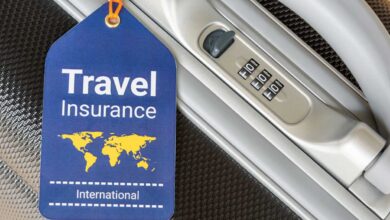
Small Business Liability Insurance Cost Comparison
Starting and running a small business is an exciting endeavor, but it comes with its share of risks. Among the many challenges business owners face, liability issues can be particularly concerning. To protect your business from unforeseen legal claims, liability insurance is a necessity. However, the cost of such insurance can vary significantly, depending on various factors. In this article, we’ll delve into the world of small business liability insurance cost comparison, helping you understand the key variables that affect the price and how to make an informed choice.

1. Types of Liability Insurance
Before we dive into cost comparisons, it’s important to understand the different types of liability insurance that small businesses may need. The two primary types are:
- General Liability Insurance: This is a basic form of coverage that protects your business from claims of bodily injury, property damage, and advertising injury. It’s often required for contracts and leases.
- Professional Liability Insurance: Also known as Errors and Omissions (E&O) insurance, this coverage is essential for businesses that offer professional services. It protects against claims of negligence, misrepresentation, or other errors that may lead to financial loss for clients.
The cost of each of these policies can vary widely. General liability insurance is typically more affordable, while professional liability insurance is more specialized and, therefore, can be pricier.
2. Factors That Affect Cost
Several factors can significantly impact the cost of liability insurance for your small business. These factors include:
- Industry and Risk: Different industries face varying levels of risk. Businesses in high-risk sectors like construction or healthcare may pay more for liability insurance compared to lower-risk businesses.
- Business Size: The size of your business, including annual revenue and the number of employees, can influence the cost. Larger businesses with more assets may pay higher premiums.
- Coverage Limits: The higher the coverage limits you choose, the more you’ll pay in premiums. It’s important to strike a balance between adequate coverage and affordability.
- Location: Insurance costs can vary by location due to different state laws, regulations, and litigation trends. A business in a high-litigation state might pay more for coverage.
- Claims History: If your business has a history of insurance claims, your premiums could be higher. Conversely, a clean claim history may lead to lower costs.
- Deductibles: Higher deductibles can lead to lower premiums, but this means you’ll pay more out of pocket in the event of a claim.
- Type of Coverage: The specific features and inclusions of your policy, such as cyber liability or product liability coverage, can affect the cost.
- Credit History: In some cases, your personal or business credit history may be a factor in determining the cost of your liability insurance.

3. The Cost of General Liability Insurance
General liability insurance is a fundamental form of protection for small businesses. On average, you can expect to pay anywhere from $400 to $600 annually for a $1 million policy. However, as mentioned earlier, the actual cost will depend on the factors discussed above. Smaller businesses with lower risk profiles may pay less, while larger businesses or those in high-risk industries will likely pay more.
4. The Cost of Professional Liability Insurance
Professional liability insurance is tailored to the specific risks of your profession. On average, premiums for professional liability insurance can range from $800 to $2,500 annually for a $1 million policy. This range is quite broad, reflecting the wide variation in costs based on industry, claims history, and coverage needs.

5. Getting the Best Value
While cost is a crucial factor when comparing liability insurance for your small business, it’s equally important to consider the value you’re getting. Here are some tips to help you get the best value for your insurance investment:
- Shop Around: Don’t settle for the first quote you receive. Obtain multiple quotes from different insurance providers to compare costs and coverage options.
- Bundle Policies: Some insurers offer discounts if you bundle different types of insurance, such as general liability and property insurance.
- Risk Management: Implementing risk management practices within your business can help reduce the likelihood of claims, which can, in turn, lead to lower insurance costs.
- Review policies annually: As your business evolves, so do your insurance needs. Regularly review your policies to ensure they still align with your business’s requirements.
- Consider an Insurance Broker: An insurance broker can help you navigate the complex world of business insurance and find the best coverage at the most competitive price.

In conclusion, the cost of liability insurance for small businesses can vary significantly based on factors like the type of coverage, industry, business size, and location. General liability insurance tends to be more affordable, while professional liability insurance can be costlier due to its specialization. To make an informed choice, it’s crucial to assess your business’s unique needs, shop around for quotes, and consider factors beyond cost, such as coverage quality and customer service. By understanding the nuances of liability insurance costs and making an informed decision, you can protect your small business while managing your budget effectively.



